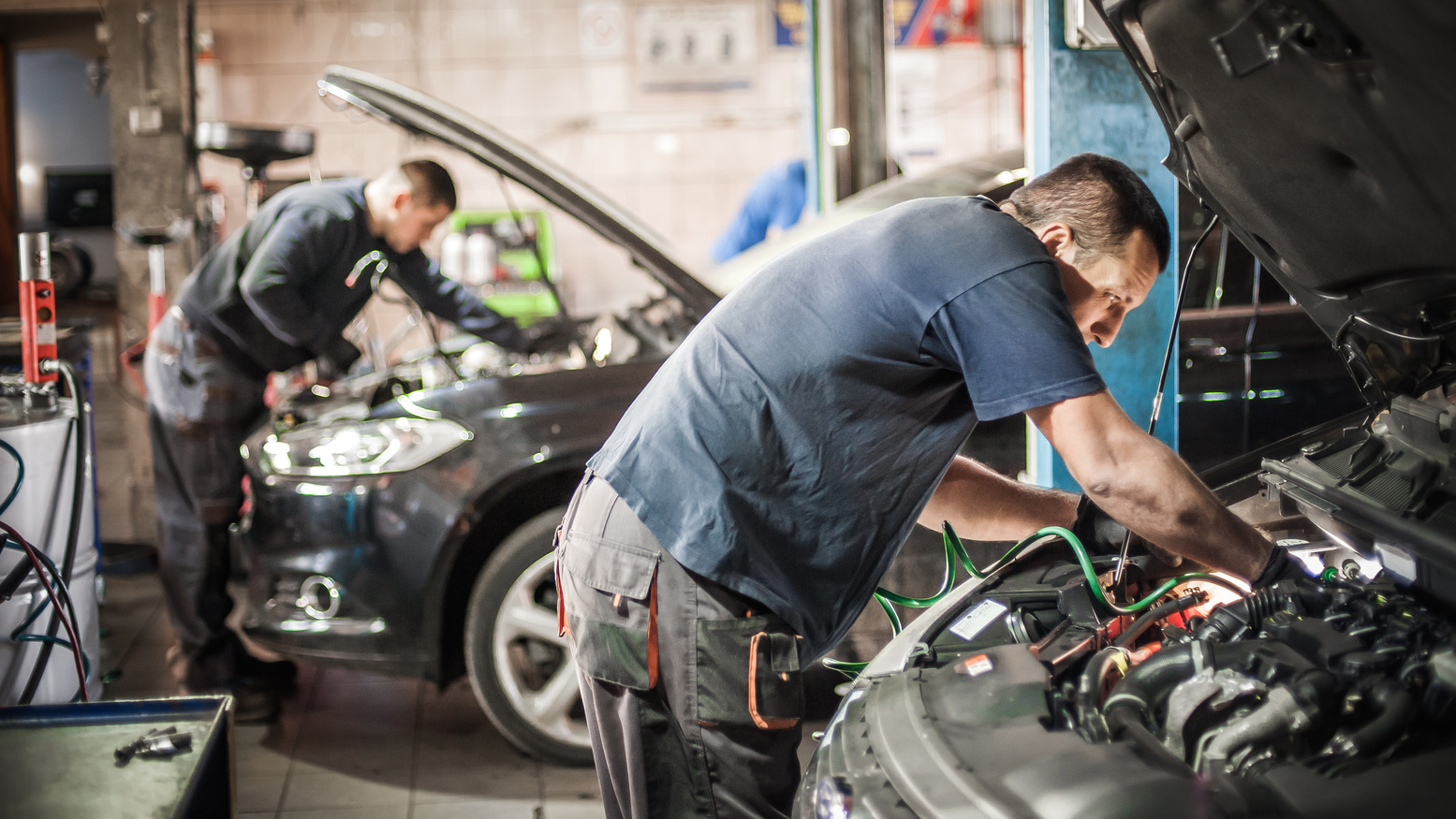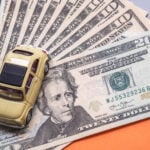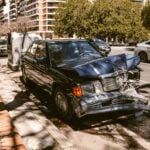Is there a grinding noise coming from your car while driving? Why do you think this is happening? When you know what’s wrong with your car and can pinpoint the source of the issue, you’ll be better prepared to take it to a mechanic for repair. And we intend to keep this blog as a guide, for that matter.
How to Diagnose a Grinding Noise Coming from Your Car While Driving?
Grinding noises should be investigated thoroughly. Follow these steps to identify the cause.
Step 1
Start your car. The grinding sound may begin immediately, or it may begin at any time during the engine’s operation.
Step 2
If you hear a grinding noise, raise the bonnet. Find the alternator, water pump, and power steering pump and closely examine them. This is to figure out where the grinding noise is coming from in the engine. If you don’t know what the alternator, water pump, and power steering pump are, you can look in your owner’s manual.
Step 3
After you’ve identified what each part looks like, listen to each one to determine if the noise is coming from one of them. Place one end of a rubber hose on the alternator and the other end up to your ear to listen to each individual part. If the alternator is malfunctioning, the hose will reveal this. The water and power steering pumps should also be observed.
Step 4
Drive the car to test the brakes. Gently apply the brakes as you drive along. If you hear a grinding sound while driving or braking, try braking a little harder. If the noise keeps getting worse, it’s possible that you have worn brake pads.
When you get out of the car, check your brake pads. If you are unsure where to begin your search, refer to your vehicle’s owner’s manual. Keep in mind that you don’t want to skimp on your brake pads. Failure and collision are real possibilities. If the pads are thinner than a quarter of an inch, it’s time to get new ones.
Step 5
Get behind the wheel and make some right and left turns while driving. To begin, turn right and then left on your car’s steering wheel. If the grinding noise gets worse in one direction and then improves when you turn the other way, it is most likely a wheel-bearing problem. It is imperative that you do not overlook the importance of wheel bearings. Your vehicle should be repaired as soon as possible by a trustworthy mechanic.
A grinding noise while driving straight raises additional concerns because the most likely culprit is neither a bearing nor a joint. Any number of things could be to blame, from pebbles lodged in the brakes to an alternator that has failed. There may be an issue with your car’s clutch if you notice a grinding noise when shifting gears. If you have any reason to believe that the problem is with your clutch or transmission, you should have it inspected by a mechanic.

What Causes the Grinding Noises?
If you hear a grinding noise as your car accelerates, you may have a problem with your transmission, a faulty differential, a worn CV joint, or a damaged wheel bearing. Noise is never a good thing when you’re driving, but a grinding sound? That’s enough to make you nervous. You should always have it checked out by a mechanic to get a proper diagnosis.
Faulty motor mount
Engines are held in place by their motor or engine mounts. Metal motor mounts are prone to corrosion, breakdown, and separation from the engine. It’s possible that your engine mount is to blame for a grinding sound you hear when you’re driving at high speeds. As a result, the engine may be swaying around in the engine bay if the motor mount has shifted or come loose.
If your car’s serpentine belt is loose, it can cause additional damage by rubbing against the underside of the vehicle’s swirl pot hose. If an engine is knocked loose from its mount and falls on it, damage to other components can occur, which can be costly to repair. With the proper knowledge and tools, you can spot-weld a worn or loose motor mount back into place.
Transmission issue
Power from the engine is transferred to the wheels through your car’s transmission. The gear system in your car is most likely to blame for the grinding noise, especially when you hear it while you accelerate. This system is necessary to ensure that your car’s wheels are moving at the same rate as the engine.
If your wheels and engine are out of synchronization, your transmission can be severely damaged. As the car accelerates or shifts gears, you may hear this grinding. The transmission is beyond repair; if you’re experiencing grinding and find out that it’s the cause of the problem, you’ll need to replace it.
Do not attempt to repair or replace your transmission yourself, no matter how much you want to be self-sufficient. Only trained mechanics should handle transmission repairs or replacements.
Faulty wheel bearing
A wheel bearing is required to keep a wheel attached to its axle. Wheel bearings ensure that your car’s wheels spin with the least amount of friction possible. When accelerating, grinding noises can indicate a wheel-bearing problem, which can negatively impact your vehicle’s steering, handling, and tire wear.
When you turn, you’ll most likely hear a grinding sound. Your transmission, CV joints, and wheel hubs can all be affected by a worn-out wheel bearing. You and your passengers could be in grave danger if the wheel bearings lock up. Replace the worn-out wheel bearing. It’s possible to do this yourself if you’re a good driver.
Malfunctioning differential
The differential sends power to each wheel using the engine’s torque, allowing the wheels to rotate at different speeds. Worn-out differential gears can make grinding or whirring sounds, which you’ll probably hear when you accelerate or make a turn.
A new differential is required if the grinding is discovered to be caused by the differential. But if you hear a whirring sound instead, the differential might be low on fluid. In order to keep the gears from rubbing against each other as you turn, differential fluid lubricates them.
An issue with the CV joint
Transmissions are usually connected to the wheels via constant velocity joints, which are typically found on front-wheel-drive vehicles. When you accelerate, you may hear a clicking, grinding, or knocking coming from one of your car’s CV joints. If you don’t pay attention, your car could get stuck, which isn’t ideal. Tires with grease on the inner edge are another sign that your CV joints are in need of repair.
If you feel vibrations while driving, the CV joint could be the reason. And it’s really possible that you’ll lose control of your car because of this. If it’s worn out, you should replace it ASAP. Luckily, you can do it yourself and save some money.
Common Queries
Are there any other symptoms of a damaged wheel bearing besides grinding noise when accelerating?
If your wheel bearing is damaged, you might come across symptoms like ABS failure, steering wheel vibration, issues with braking, or uneven tire wear.
Why is there a grinding noise while driving, even when the brakes are not applied?
Poor wheel bearings cause grinding noises while driving, even if the brakes are not applied. Consequently, the noise can get louder with increased speed.
Why is there a grinding noise when accelerating?
If you are experiencing a grinding noise while accelerating, it could be due to transmission issues. However, it could also be due to bad wheel bearings, poor CV joints, or a damaged engine.
Is it safe to drive with a grinding noise?
Several reasons can cause grinding noise while driving. However, driving with it can damage your vehicle’s components and be dangerous for the occupants in the vehicle. So, to ensure your safety on the road, it’s important to seek professional help.
Do wheel bearings make a grinding noise?
If the wheel bearings are in bad condition, it can cause grinding noise.
Can low transmission fluid cause grinding noise?
Unusual grinding or whining noises can be one of the symptoms of low or insufficient transmission fluid in vehicles.
Can bad rotors cause grinding noise?
Worn or damaged rotors can cause grinding or squealing noises. Rust accumulated on the brake rotors and pads can also produce a grinding noise.
What is one of the first signs of bearing failure?
Unusual grinding noise coming from the bearing is among the first signs of bearing failure.

Sara Sam may not look like your typical car and finance expert, but don’t let that fool you. With over four years of experience in the industry, she knows all the ins and outs of cars, car insurance, and refinancing. You can trust Sara to help you navigate the often-confusing world of automobiles and financing.
















